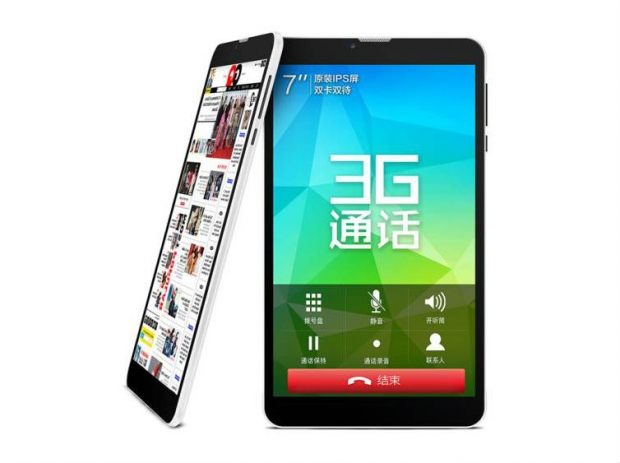The chipmaker announced the first three Atom x3 parts a month ago, with an emphasis on smartphones. However, in addition to SoFIA phones, Intel also proceeded to offer assistance to tablet manufacturers who opted to embrace its latest low-cost architecture.
SoFIA ends up cheaper than expected
In late April, we reported that Intel will push 7-, 8- and 10-inch tablets, with prices starting at $79, $89 and $129 respectively.
However, the first retail SoFIA device we came across costs even less. The Telcast X70 tablet is based on an Atom x3-C3130. It’s an entry level device, with a 7-inch 1024x600 IPS display, 512MB of LPDDR2 and 4GB of eMMC storage. The tablet runs Android 4.4.4.
Although the specs are hardly impressive, bear in mind that this is a $69.99 device and it’s already shipping via Geekbuying (and presumably other Chinese e-commerce sites).
What does Intel SoFIA bring to the table, or tablet?
The Atom x3-C3130 is a dual-core part clocked at 1.0GHz, although it’s erroneously listed as a quad-core in the Telcast product listing.
The SoC features antiquated Mali 400MP2 graphics with support for 1280x800 displays. It might not sound like much, but SoFIA is all about value. Therefore the SoC is manufactured in 28nm, the cheapest node for the time being, and it has a few features that might make it attractive in the low-end smartphone and tablet space.
The chipset features 3G connectivity, along with support for 802.11b/g/n wireless, Bluetooth 4.0 LE, GPS and FM radio. It can also handle cameras up to 13 megapixels. The Telcast X70 features 3G connectivity and can be used as a phone as well. In terms of hardware, it’s actually an oversized phone, but the price is what has us intrigued.
At just $69.99, the tablet is dirt cheap and makes us wonder what sort of pricing we can expect from SoFIA phones. The pricing basically puts the entry-level SoFIA part toe to toe with the cheapest dual-core Cortex A7 parts used in most bargain bin Android phones on the market today. These ARM parts tend to feature the same Mali 400 GPU, but usually fall short in terms of connectivity and GPS support.




